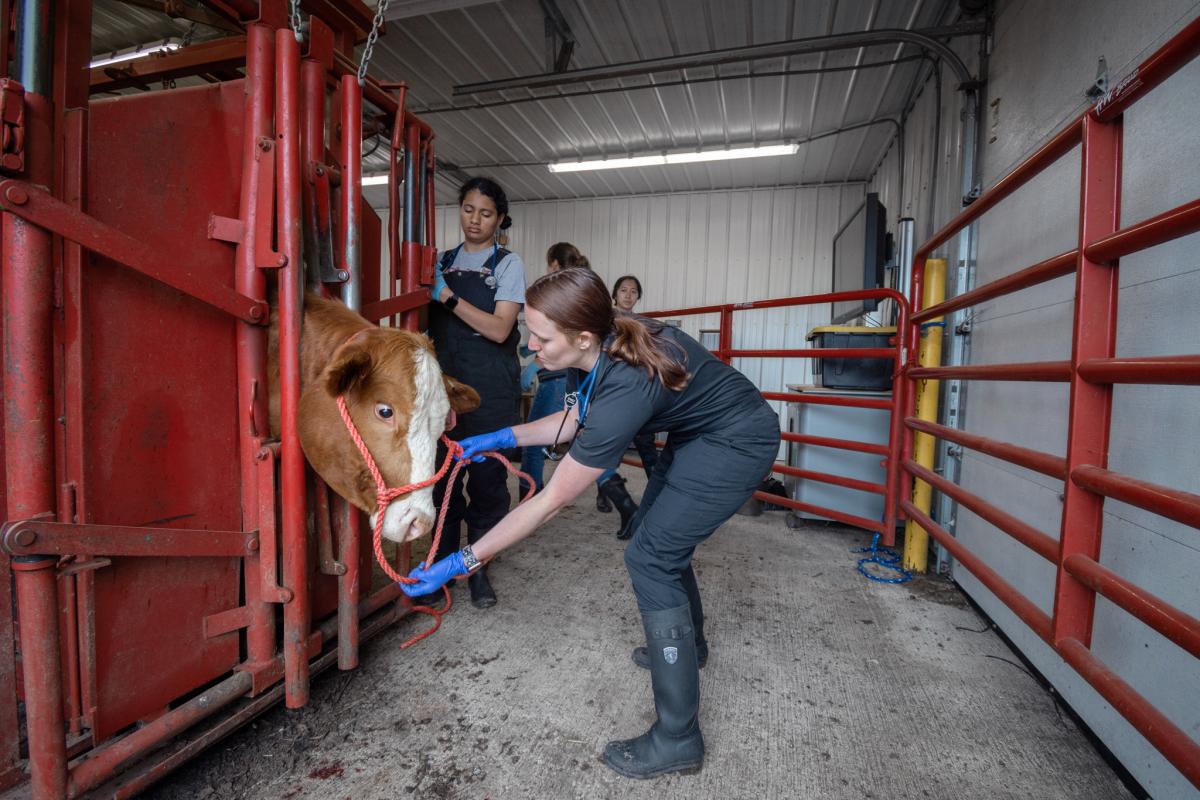
October 17, 2023
A joint program between the College of Veterinary Medicine and the Department of Animal Science in Iowa State University’s College of Agriculture and Life Sciences has been established with the goal of educating more veterinarians who wish to practice production animal medicine.
The program, Production Animal – Veterinary Early Acceptance Program (PA-VEAP), will recruit and retain future veterinarians to practice production animal medicine, primarily in underserved areas in Iowa and throughout the United States.
“Currently, there is a nationwide shortage of veterinarians in all sectors of the profession,” said Dr. Dan Grooms, the Dr. Stephen G. Juelsgaard Dean of Veterinary Medicine. “With the PA-VEAP program, we are helping to address the critical need for veterinarians to support Iowa’s $32 billion animal agriculture industry.”
A recent American Veterinary Medical Association study found less than four percent of veterinarians nationwide predominantly practice production animal medicine.
“The declining number of veterinarians supporting the production animal industry poses a significant food security threat,” said Dr. Justin Brown, assistant teaching professor of veterinary diagnostic and production animal medicine and the director of the program. “This shortage also presents an opportunity for students interested in production animal medicine to become a resource for underserved areas.”
PA-VEAP is an undergraduate program for students majoring in animal science or dairy science at Iowa State. Students must also be pursuing completion of an undergraduate certificate in beef cattle, dairy cattle, poultry or swine production management.
Students can apply to the program during their second semester of their first year at Iowa State after completing or being enrolled in a Biology I or II and Chemistry I with the appropriate labs.
To remain in the program, students must earn a minimum grade point average of 3.4 while completing all prerequisite courses for admission into the College of Veterinary Medicine. Students must also complete a minimum of 300 hours of approved food animal experiences.
“This program will allow students to have a clear path forward to veterinary school, allowing them to build community amongst their peers and with faculty members, while helping prepare them for a career in veterinary medicine,” Brown said.
Initially, PA-VEAP will enroll 10 students a year. Once enrolled in the program, students will be assigned a program advisor from both the Department of Animal Science and the College of Veterinary Medicine.
“I believe by getting students engaged early in their academic careers, we will be able to mentor them and grow their interest in practicing in rural communities and working with production animals,” Brown said. “We will also be able to assist them in their undergraduate and professional programs while setting them up for success to practice in rural communities.”
More information on the application process will be coming soon from the College of Veterinary Medicine and Department of Animal Science.
